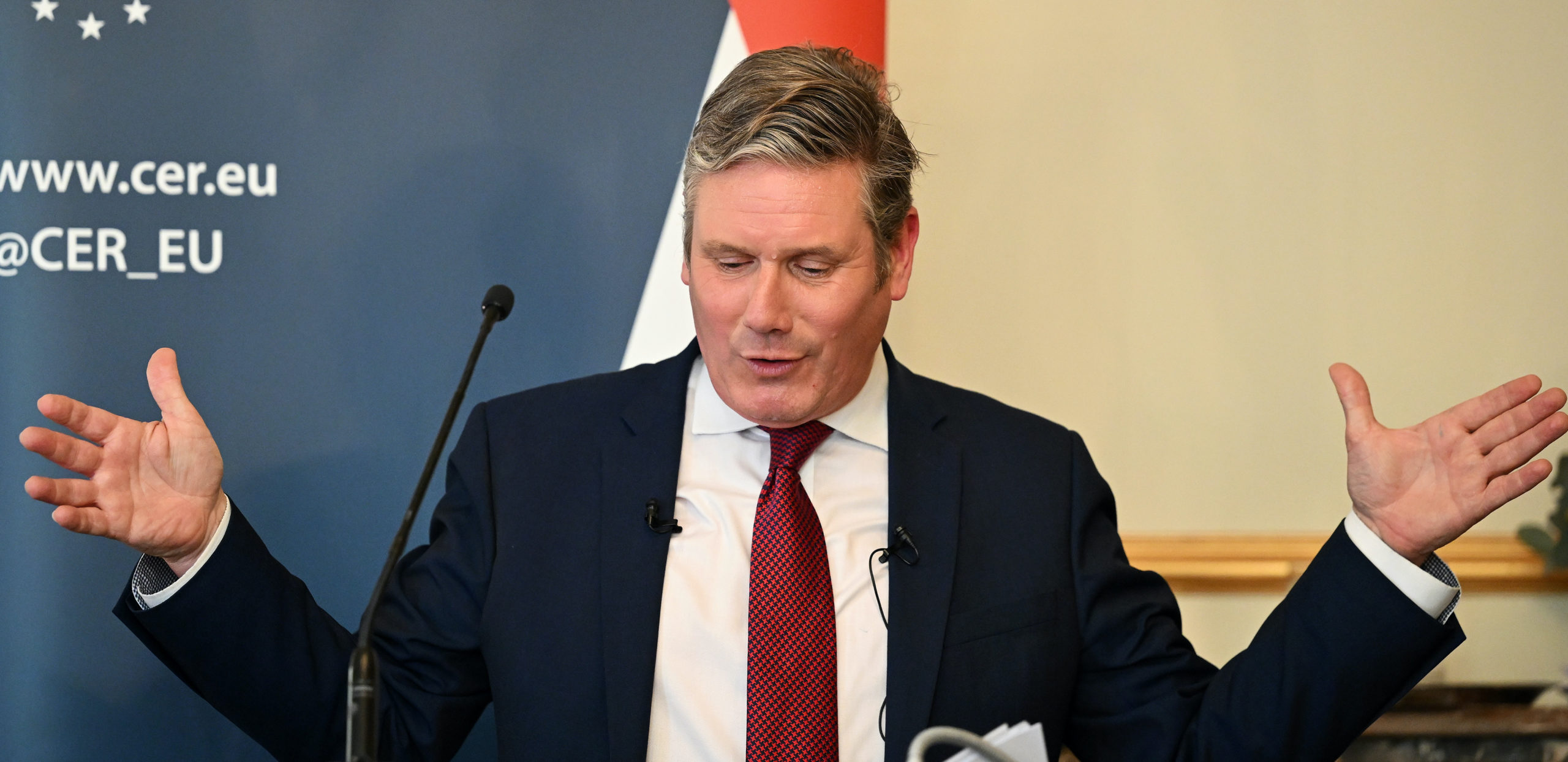‘Make Brexit work.’ We can only assume Keir Starmer’s latest slogan was focus-grouped to death before it was adopted. And buried within it is the same blurring of the Brexit trade-offs that has plagued our politics for so long.
A veterinary agreement, mutual recognition of professional qualifications, mutual recognition of conformity assessments, and continued data adequacy. Not exactly the sexiest stuff, but these are all areas where the Labour leader believes that trade can be improved, while making the Great Britain-Northern Ireland border far less onerous.
All of which will have some economic impact, at some political cost. Aligning with EU veterinary standards could conceivably get in the way of trade talks with partners like the US. Equally, pledging to maintain data adequacy will please British businesses, but it will limit the UK’s ability to get rid of some of the more pesky aspects of GDPR regulation.
Left unsaid is the fact that these steps would only address the economic impacts of Brexit at the margins. On this trade-off, Starmer is treading a very fine line. And, crucially, he is less interested in prompting a debate about Brexit than in devising a holding position that will paper over the cracks and allow his team to focus on other issues.
Thus, his outright rejection of single market or customs union membership was clearly meant to signal the limits to his rapprochement with the EU and to reassure Leave supporters (and nullify Tory attacks). Simultaneously, he wanted to suggest to Remainers that there has been a real change in the direction of travel.
The potential prize for Labour is the ability to add Brexit to the economic competence charge sheet — another example of why the Conservatives cannot be trusted to manage the country at a time of economic peril. The danger lies in these halting steps towards closer links with the EU being portrayed as the thin end of the wedge.
Outside Westminster, the political weather has changed. There is growing evidence that voters are increasingly identifying Brexit as a cause of some of the economic problems they are facing. Research from Ipsos showed that both Leavers and Remainers think Brexit is having a negative effect on them personally.
Voters, it seems, accept the trade-offs inherent in Brexit even if their politicians do not: our research found a majority of Leavers say it has had a negative effect on wages and the cost of living. So, while Brexit is not something voters want to argue about, it is something they are increasingly grumpy about. Starmer’s argument is leaning into these political headwinds.
So far — and it is early days — the signs for LOTO are encouraging. After all, a Brexit policy ruling out single market and customs union membership that is supported by James O’Brien and Ian Dunt (albeit not enjoying the full throated backing of the Labour Movement for Europe) was hardly a foregone conclusion. Moreover, the silence of the Liberal Democrats suggests a useful temporary truce.
In truth, Starmer had little choice but to finally make an intervention on Brexit. He could hardly have gone into the next election maintaining a staunch silence on all matters Europe, given the Government seems intent on hammering the issue. At a minimum, his intervention was intended to counter claims that he has no Brexit policy.
More ambitiously, Labour hope it might allow them to weaponise the issue as part of their broader attack on the Government’s economic competence. Whether it works will partly hinge on whether it is Brexit purity or economic security that is the main concern of voters when they finally start to pay proper attention to this debate. You don’t need a focus group to tell you that the Labour leader might like his odds.










Join the discussion
Join like minded readers that support our journalism by becoming a paid subscriber
To join the discussion in the comments, become a paid subscriber.
Join like minded readers that support our journalism, read unlimited articles and enjoy other subscriber-only benefits.
Subscribe